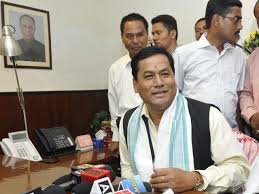
Rajya Sabha passes Bill to modernize 1908 ports law, align with global standards

 :
| Updated On: 19-Aug-2025 @ 12:24 pm
:
| Updated On: 19-Aug-2025 @ 12:24 pmSHARE
On Monday, the Rajya Sabha passed the Indian Ports Bill, 2025 through a voice vote after an extensive discussion lasting nearly two hours in the afternoon session. The passing of the Bill came amidst a noisy atmosphere, as the Opposition staged a walkout demanding a discussion on the revision of electoral rolls in Bihar. Despite the protests, the Bill was taken up and approved in the Upper House, with BJD’s Sasmit Patra presiding over the session. The Lok Sabha had already cleared the Bill on August 12, paving the way for its final passage.
The Indian Ports Bill, 2025 is designed to replace the century-old Indian Ports Act, 1908, which is widely seen as outdated in addressing modern port-related challenges. The primary objectives of the Bill include modernising the regulatory framework, ensuring India’s compliance with international standards, and promoting integrated development of ports across the country. By updating the provisions, the legislation also seeks to facilitate business growth, improve transparency, and ensure the optimal use of India’s vast coastline for economic development.
During the debate, Union Minister for Ports, Shipping and Waterways, Sarbananda Sonowal, strongly defended the Bill. He criticised the Congress party for neglecting the port and shipping sector in the past, which, according to him, had led to underdevelopment. Responding to the Opposition’s walkout, Sonowal emphasised that the role of the Opposition should not be confined merely to opposing government actions. Instead, he said, they also carry the responsibility of being responsive and accountable in the larger interest of the nation.
Explaining the key features of the Bill, Sonowal underlined that it was drafted after extensive consultations with a wide range of stakeholders, including coastal states, port authorities, and users. The Bill introduces several reform measures:
-
Decriminalisation of certain offences: Removing stringent penalties for outdated regulatory breaches, thereby making the system more business-friendly.
-
Greater transparency in port tariffs: Ensuring clarity and fairness in the determination of port charges.
-
Comprehensive management provisions: Covering pollution control, disaster management, emergency response, security, safety, navigation, and port data handling.
-
International compliance: Enabling India to meet its obligations under global maritime instruments.
-
Dispute resolution mechanisms: Establishing systems to handle port-related conflicts efficiently.
These reforms are expected to enhance operational efficiency, boost investor confidence, and make Indian ports more competitive globally.
The Bill received support from multiple political parties. Birendra Prasad Baishya of the Assam Gana Parishad (AGP) backed the legislation, stating that it would strengthen India’s ports and contribute to regional development. Similarly, Praful Patel of the Nationalist Congress Party (NCP) supported the Bill, noting that India’s aspiration to become the world’s third-largest economy depends heavily on infrastructure development, particularly ports. He emphasised that robust port infrastructure is crucial for both exports and imports, thereby driving overall economic growth.
The debate also saw some contentious exchanges. AIADMK MP Thambidurai alleged that narcotics were being smuggled into Tamil Nadu after the DMK assumed power in the state. This statement sparked objections from DMK MP Tiruchi Siva, who opposed certain remarks. The Chair intervened and ordered that the contentious words be expunged from the records.
In conclusion, the Indian Ports Bill, 2025 represents a major legislative reform aimed at updating an archaic legal framework that governed ports for over a century. With provisions to enhance efficiency, ensure transparency, and align with global standards, the Bill sets the stage for a stronger and more resilient port sector. Its passage also underscores the importance of infrastructure development in India’s broader economic vision, even as political debates and partisan disagreements continue to shape parliamentary proceedings.